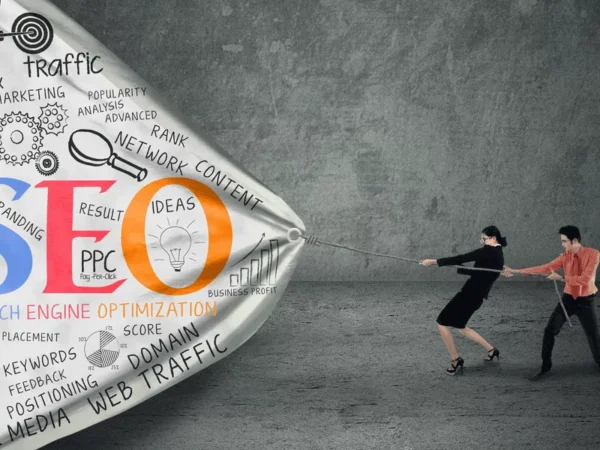You may have heard that SEO (Search Engine Optimization) is all about getting your website to rank higher in Google search results. And while that’s true, there’s more to it than that. SEO is also about optimizing your website for human visitors.
Why is that important?
Well, consider this: The average attention span of a human being is 8 seconds. That means you have 8 seconds to make a good impression on your website visitors and convince them to stick around.
If your website is slow, difficult to navigate, or full of errors, you’re not going to keep those visitors on your site for long. And if they’re not on your site, they’re not going to see your content, no matter how well optimized it is for Google.
That’s why website optimization is so important for SEO. If you want to rank higher in search results AND keep your visitors happy, you need to optimize your website for both search engines and human visitors.
In this guide, we’ll show you how to do both. We’ll start with the basics of SEO marketing then move on to on-page and off-page optimization, and finish with some advanced SEO strategies. We’ll also provide you with a list of SEO tools and resources to help you along the way.
Basics of SEO Marketing: What you need to know to get started. Before we get into the details of how to optimize your website for SEO, let’s first answer some basic questions:
What is SEO?
SEO is the process of optimizing a website for Google search with the goal of earning higher web traffic levels and improving the visibility of the site.
Why is SEO important?
SEO is important because it can help your website rank higher in search results, which can lead to more web traffic and improved visibility for your business.
How does SEO work?
SEO works by improving the visibility and ranking of a website in Google search results. The higher a website ranks, the more likely it is to be seen by potential customers.
On-Page SEO:
On-page SEO is the process of optimizing a website’s content and structure for Google search.
There are a number of things you can do to optimize your website for on-page SEO, including:
- Choose the right keywords: Keywords are the foundation of on-page SEO. Choose keywords that are relevant to your business and that you think potential customers will search for.
- Use those keywords throughout your website: Once you’ve chosen your keywords, use them throughout your website, including in the title, headings, and body of your content.
- Optimize your website’s structure: The structure of your website is also important for on-page SEO. Make sure your website is easy to navigate and that your content is organized in a logical way.
- Make sure your website is mobile-friendly: More and more people are using their mobile devices to search the web. Make sure your website is designed to be viewed on a mobile device.
Off-Page SEO:
Off-page SEO is the process of promoting a website through link building and other means.
Link building is the process of getting other websites to link to your website. The more links you have pointing to your website, the higher your website will rank in Google search results.
There are a number of ways to build links to your website, including:
- Submitting articles to directories: Write articles related to your business and submit them to directories like EzineArticles.com. Include a link to your website in the article.
- Commenting on blogs: Find blogs related to your business and leave comments with a link to your website.
- Participating in forums: Join forums related to your business and include a link to your website in your forum signature.
Conclusion:
In this guide, we’ve covered the basics of SEO marketing, including what it is, why it’s important, and how it works. We’ve also covered some advanced SEO strategies, including how to optimize your website for on-page and off-page SEO. Finally, we’ve provided a list of some of the best tools and resources for SEO.
By following the tips and advice in this guide, you can start to improve your website’s visibility and ranking in Google search results.




